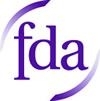Despite delayed guidelines from FDA, mHealth popular with payers
Health information technology is becoming a major part of the changing healthcare system in the U.S. With the Patient Protection and Affordable Care Act pushing healthcare providers to adopt devices such as electronic health records in their operations, digitized information is gradually replacing the old paper filing methods for patient records, medical histories, billing information and other confidential data. The federal government has created a number of programs to fuel adoption of EHRs and other forms of health IT, with special consideration paid to the effective use and security protections surrounding these devices.
While EHR systems have been moving along well in terms of government regulatory efforts, another expanding area of health IT is encountering some conflict. Mobile health applications have been touted by healthcare providers and other industry experts as the next logical step for improving practice productivity, healthcare access, affordability and patient communications. However, the federal government has been slow to embrace mHealth applications as they have traditional EHRs. Despite this delay, mHealth is becoming increasingly popular within the U.S. healthcare system, according to Healthcare IT News.
Payers turning to mHealth
While many doctors have not yet adopted mHealth technology in their own practices, consumers are becoming increasingly interested in this form of health IT, reported Healthcare IT News. In particular, two major mobile products are expected streamline the way insurance companies communicate with their customers.
SundaySky has created a product known as SmartVideo that allows insurance providers to develop informative and easily accessible videos for consumers. These videos can help potential customers differentiate between various policy options in order to make the best decision on their part.
Similarly, Jiff unveiled its newest product, the Jiff Platform, which enables health plans of various sizes to merge their healthcare information with an easily accessible digital platform. This technology would greatly improve the convenience for company employers and employees looking to learn about their health insurance benefits while exercising personal control over their plans from a mobile device.
"Employers are really looking for ease of contracting," said Derek Newell, Jiff's CEO. "It's difficult for them to get a handle on the convergence of mobile sensing devices, the proliferation of applications … and this huge amount of innovation. They want to be able to manage that complexity … Employers get alignment with outcomes and real time visibility, while employees get choices."
FDA lagging behind with mHealth regulations
Despite the speed at which health IT developers, insurance companies and employers are latching on to new mHealth systems, the federal government is still dragging its feet in providing comprehensive guidelines for mobile health applications. According to EHRIntelligence, the U.S. Food and Drug Administration has not finalized mHealth rules since initially releasing a draft two years earlier. Even after announcing that it would issue final guidelines at the beginning of 2013, the FDA remains unclear about when mHealth rules will be in place.
The main concern among healthcare experts about the lack of FDA guidelines is how this will affect government regulations. In the draft guidelines, the FDA distinguished between regulation for low-risk apps as opposed to more vital mHealth systems that are essential for quality patient care and monitoring. As a result, app developers do not know whether their mHealth products will be subject to FDA regulations.
The mHealth Regulatory Coalition recently sent a letter to U.S. Department of Health and Human Services Secretary Kathleen Sebelius asking her to finally publish the finalized FDA guidelines. The MCR letter noted that this hesitation has prevented many app developers from being able to break into the healthcare market out of concern for breaking potential regulations from the federal government.



